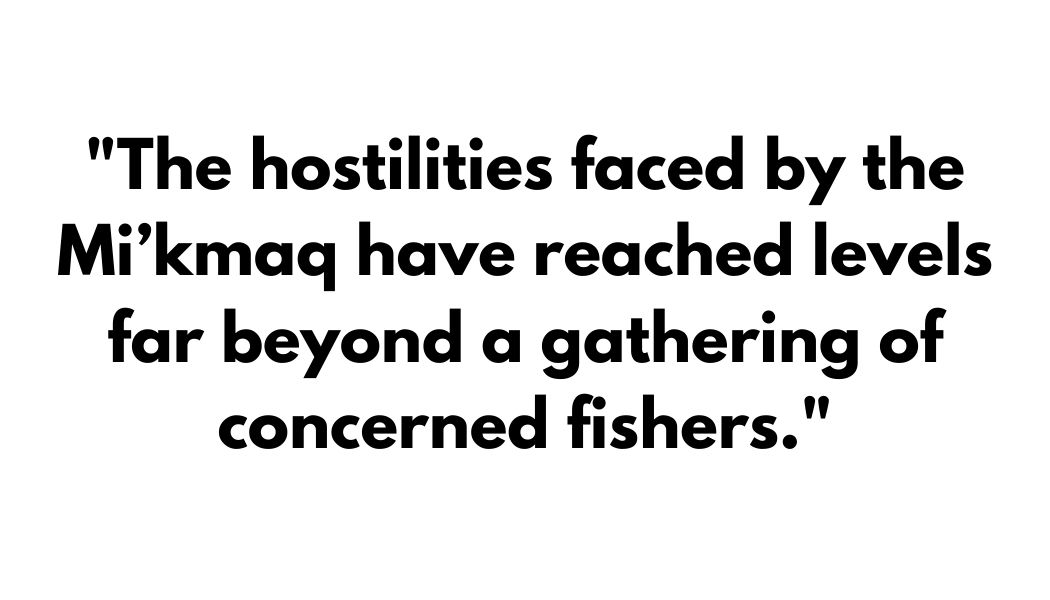
In the territory of the Mi’kmaq, now referred to as Nova Scotia, there have been extreme tensions between Indigenous and settler lobster fishers. The tensions come after three bands, the Sipekne’katik, Paqtnkek, and the Potlotek set up Moderate Livelihood Fisheries.
According to 18th century treaties with the crown, which were affirmed in Section 35 of the Canadian Constitution Act of 1982 and the R. v. Marshall case, Mi’kmaq people have harvesting and selling rights in order to maintain a moderate livelihood. These harvesting and selling rights are without a time frame and can be done whether it is harvesting season for a certain species or not.
In response to Mi’kmaq fishers setting up 150 out of their 350 allowed traps, non-Indigenous fishers gathered at the wharf in Digby to protest. These non-Indigenous fishers believe that the Mi’kmaq should not be allowed to practice their treaty rights. They believe that Mi’kmaq fishers fishing out of season will harm the rest of the fishing industry.
According to the Nova Scotia fishing industry overview, there were 51 000 metric tons of lobster caught in 2014 alone. The lobster fishing season typically lasts around late-November to late-May. In only six months there are almost 51 000 metric tons of lobster caught off the coast of Nova Scotia, but these non-Indigenous fishers claim that 150 Mi’kmaq traps will collapse the industry.
The hostilities faced by the Mi’kmaq have reached levels far beyond a gathering of concerned fishers.
One of the ways Nova Scotian fishers have found it appropriate to protest Mi’kmaq harvesting practices has been to chase down boats and fire flares directly at them. There have also been attempts to ram small boats with much larger vessels. This has led the Mi’kmaq Chiefs Assembly to declare a state of emergency until tensions have subsided.
At an anti-Mi’kmaq protest on Sept. 18, there were two people were arrested and charged with assault.
In the days following these arrests, lobster traps in St. Mary’s Bay were vandalized, their lines were cut, and the traps were left on the shore.

Even more extreme, some fishers have posted calls on social media to reimplement the Canadian residential school system, and for other harsh treatment of Indigenous peoples and their children.
There needs to be protection of Indigenous peoples and our rights to harvest. The police have no problem arresting Indigenous youth sitting in an office, but when hoards of non-Indigenous people violently threaten and vandalize Indigenous bodies and properties, there is no action.
This is not an issue exclusive to Nova Scotia. Indigenous peoples face danger and harassment all over this country when harvesting — most notable in the case of Jake Sansom and Maurice Cardinal, two Métis hunters murdered on an Alberta gravel road, at the beginning of the COVID-19 pandemic. Sansom and Cardinal were hunting to feed their families after pandemic-related lay-offs.
The Canadian government needs to step up and protect Mi’kmaq fishers that are only trying to practice their treaty right to fish. Indigenous people should not have their lives threatened and their property destroyed for harvesting on our own territories.






